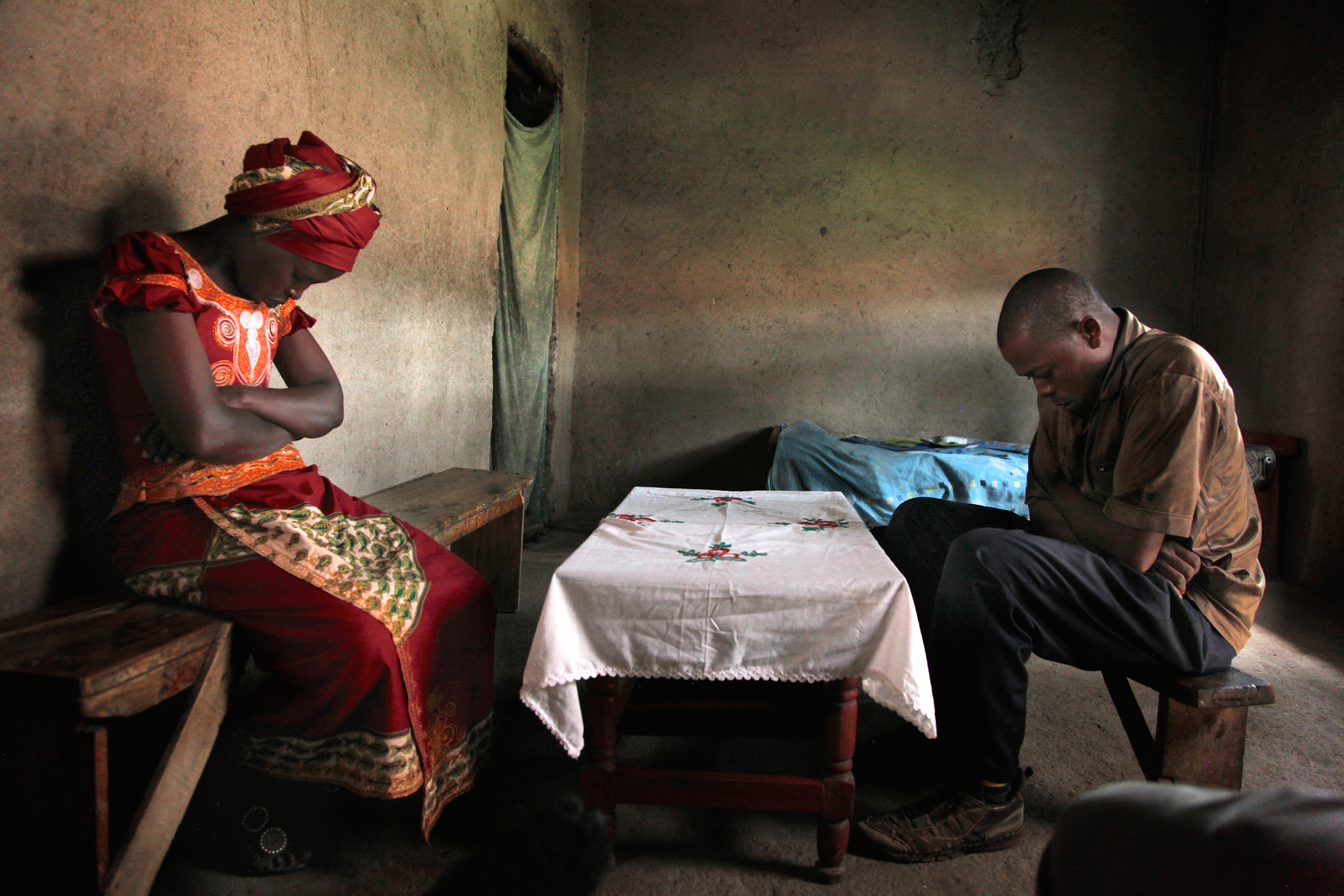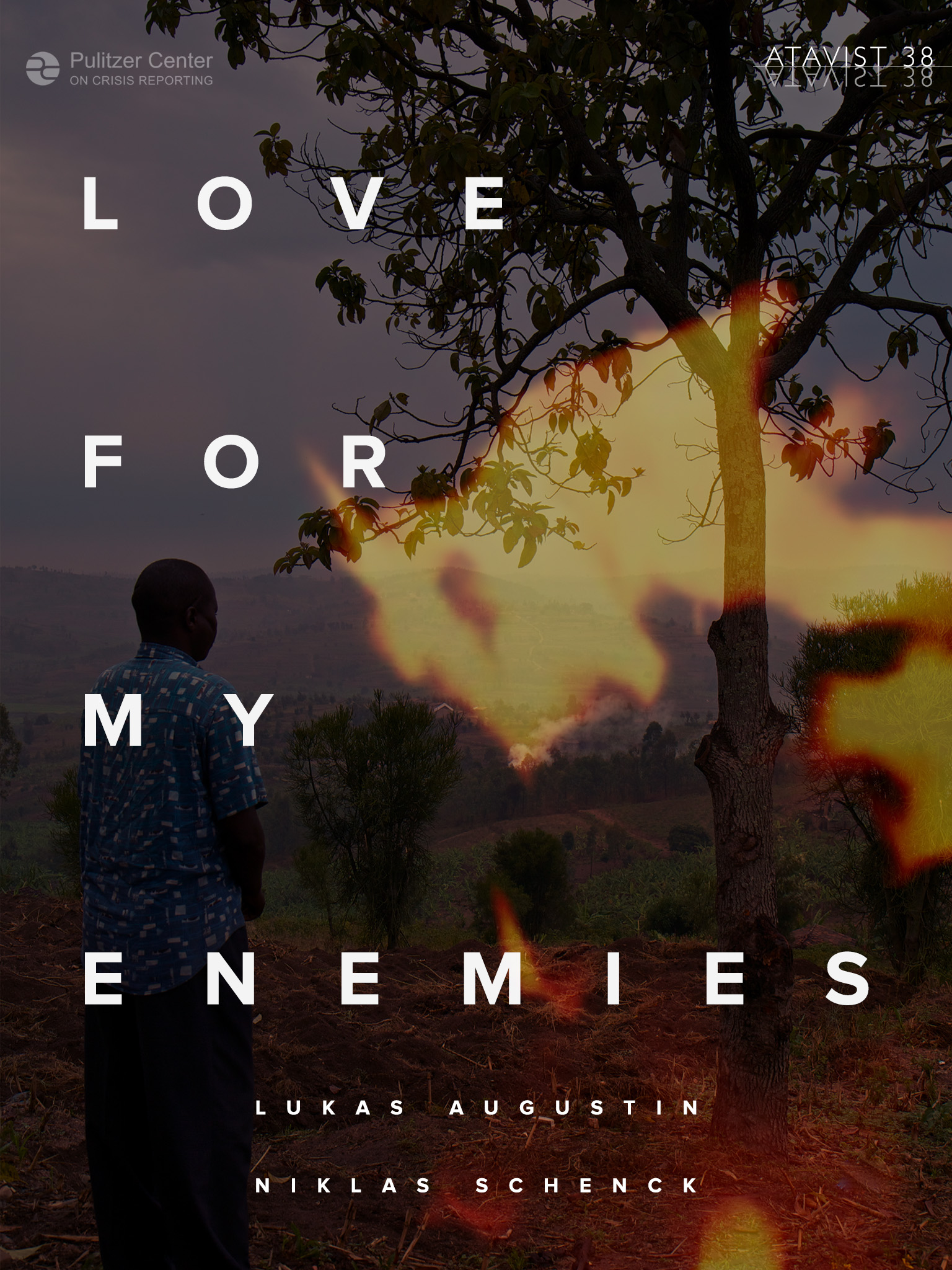
In 1994, as the genocide unfolds in Rwanda, the Hutu mayor of Mugina, a village one hour drive from the capital Kigali, promises shelter to fleeing Tutsis in the grounds of the Mugina Catholic Church. When the Hutu militia find out, they killed him and shortly afterwards, launched a massacre against 30,000 Tutsi hiding at the church.
For their project, Lukas Augustin and Niklas Schenck follow the journey to reconciliation of two pairs of genocide survivors and perpetrators from Mugina.
Wellars Uwihoreye, a Hutu, and Innocent Gakwerere, a Tutsi, grew up as friends and neighbors in Mugina. In 1994, amid the genocide, Uwihoreye was part of a mob looting and killing Tutsi. One day, he spotted Gakwerere and ran after him, calling in a mob to kill him. The attackers caught Gakwerere and badly mutilated his face with machetes, leaving him for dead in a pile of bodies. Today, Uwihoreye and Gakwerere are friends again.
A second pair grappling with forgiveness are Ananias Ndahayo and Claudine Murebwayire. Murebwayire was badly wounded in the church attack and her baby was killed with a machete while in her arms. While Murebwayire was in the hospital during the last days of the Mugina genocide, Ndahayo killed Murebwayire's two remaining brothers by burying them alive.
Almost twenty years later, Lukas Augustin and Niklas Schenck examine the moving and often surprising evolution of each pair's reconciliation process, as each grapples with the consequences of the crimes they committed or suffered from twenty years ago. Taking advantage of The Atavist's innovative multimedia platform, Augustin and Schenck will interweave these recordings with text, maps, interactive character profiles, and other materials, in order to explain the context of the Mugina massacre and the reconciliation project under way there. The result is a unique hybrid of documentary film and text that uses each medium to maximize the emotional heft and informational value of the work as a whole.




